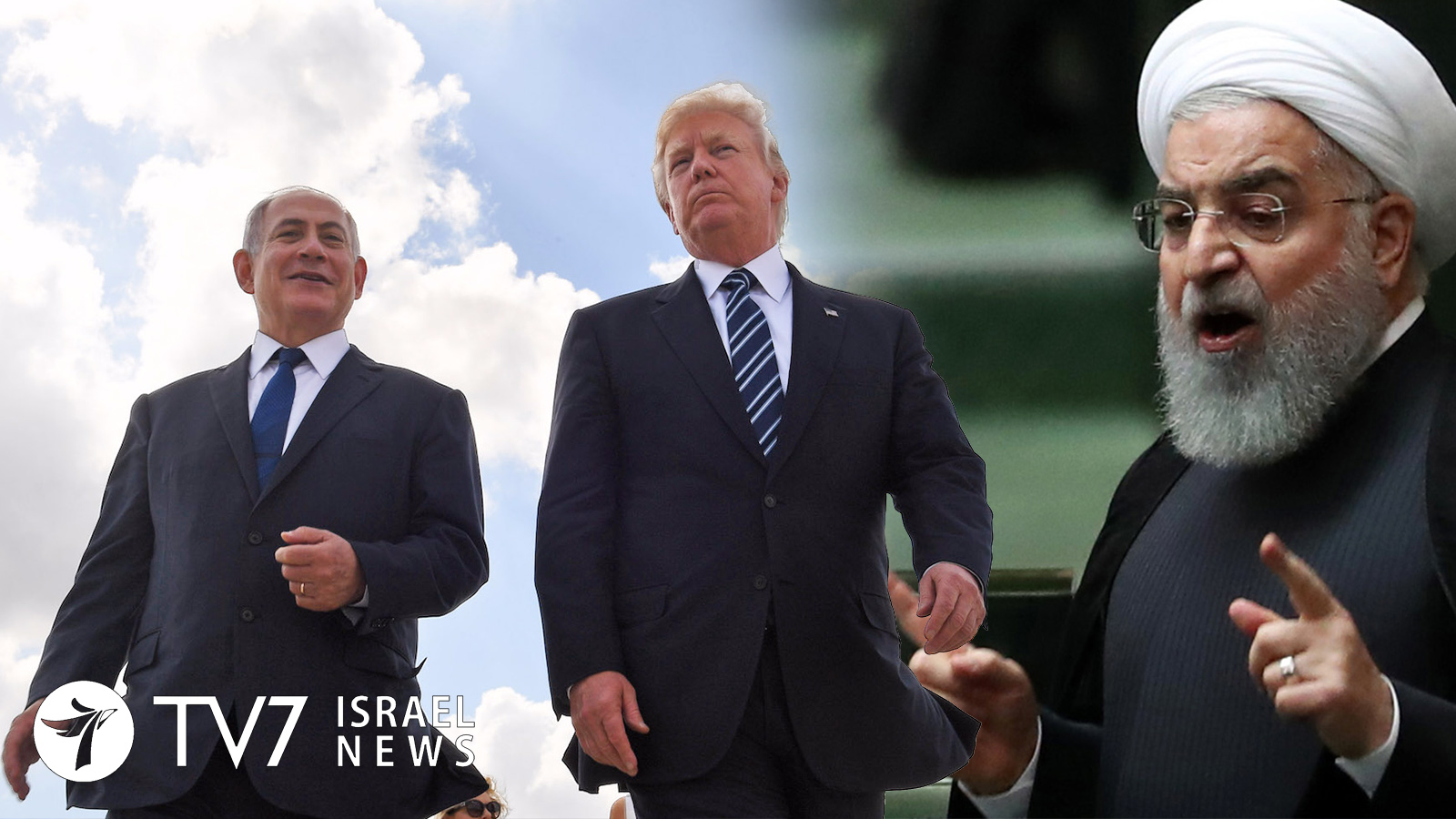In reference to Iran’s current violations of the 2015 Joint Comprehensive Plan of Action atomic agreement with world powers, Israeli Prime Minister Benjamin Netanyahu said the only positive outcome of the pact was the emergence of new regional alliances between the Jewish State and its Arab neighbors over the shared threat of a nuclear-Iran.
In remarks made during a meeting at his Jerusalem office with students from the National Defense College under the command of Major-General Itai Virov, the Israeli leader said, “The only thing that the awful nuclear agreement gave is our strong and ongoing rapprochement with the main Arab countries. Iran tells them in a straightforward manner – ‘We will destroy you and we will destroy you, first of all, with nuclear weapons.’”
Netanyahu reminded his listeners that he had fought a lone battle to stop enactment of the JCPOA at the time it was being negotiated by then-U.S. President Barack Obama. “I needed to struggle against all of the major powers and against the President of the United States – I went to the American Congress,” he said, adding, “I thought that this agreement would not only pave their way to a nuclear arsenal but would also give them hundreds of billions of dollars which they would not invest in Iran but in an empire. Today you can judge if we were right or not.”
He then stressed, “At the moment, the only military in the world that is confronting Iran – is the Israeli military.”
Meanwhile, Iran today threatened to “return to the situation before its nuclear deal with world powers — unless European countries fulfil their obligations,” the spokesman for the Islamic Republic’s Nuclear Agency, Behrouz Kamalvandi, said, according to IRNA news agency. Tehran’s signal to resume its nuclear program is largely seen by the West as a cover for making atomic bombs.
There has been an escalation of tensions since U.S. President Donald Trump decided last year to abandon the nuclear deal under which the Islamic Republic was afforded for relief from economic sanctions crippling its economy, in exchange for curtailing its atomic program – which Israel and the U.S. have long insisted Iran has not honored.
After the White House re-instated tough punitive measures most notably targeting Iran’s main oil revenue stream, the country retaliated by scaling back on many of its crucial commitments under the deal, particularly the level to which it is enriching uranium.
Warnings from JCPOA co-signatories, France, Britain and Germany, about Iran’s failure to comply with the accord have been accompanied by demands from the Ayatollah Regime that the Europeans take immediate action to bypass the U.S. sanctions in order to make good on the economic relief it had been promised.
While the Trump administration says it is open to negotiations with Iran on a more far-reaching agreement on nuclear and security issues, Tehran has made any such talks conditional on first being able to export as much oil as it had prior to Washington’s May 2018 withdrawal from the JCPOA. Simultaneous to the declared-threats from the Islamic Republic’s Nuclear Agency today, those terms were reiterated by Iranian President Hassan Rouhani.
After branding Washington “a bully” that must be stood up to and U.S. sanctions as “belligerence,” the Iranian leader said in a televised address that “We have always believed in talks. Always, right this hour, right this moment, if they stop the oppression, if they stop the belligerence, if they lift sanctions, return to the table, return to logic; we are ready.”
Amid fears of the 2015 nuclear deal’s imminent collapse, Britain’s Foreign Secretary Jeremy Hunt said there is a “small window” of time to salvage it, as Dutch Foreign Minister Stef Blok reaffirmed “it is still not too late, but Iran really has to stick to its obligations.”
European Union foreign ministers meeting in Brussels today sought new strategies to deescalate tension in the Persian Gulf while convincing Iran to honor its commitments. They also looked to garner further support for a barter-type system to conduct trade with Tehran in an effort to evade possible U.S. sanctions – with ten nations reportedly already on board.
